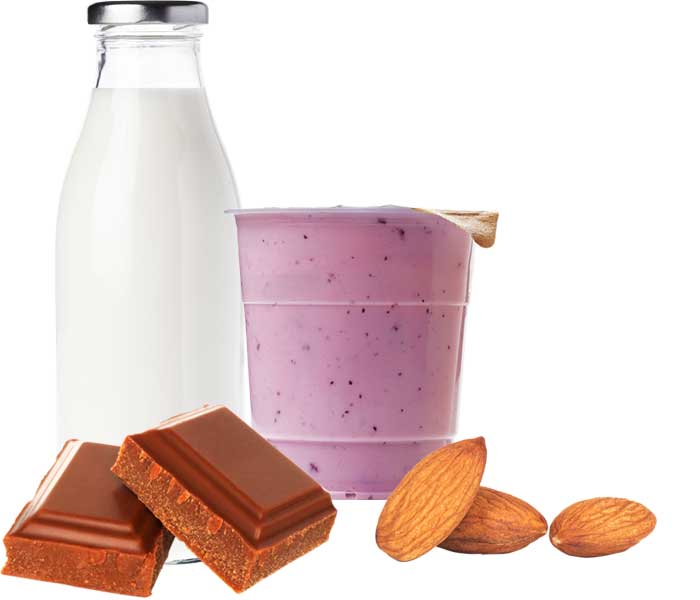Science is starting to understand and explain what many cultures have known for centuries: that being generous, compassionate and kind to yourself and others triggers a flow of healthy hormones that impacts health and disease.
Here is what we know so far…

What are Hormones?
These are groups of molecules that are produced by glands, under the control of the brain.
They are released and transported around the body to regulate its function.
Hormones bind to a specific receptor at a target site and cause the cell to change its function, which may either increase or decrease its activity.
This complex signalling is controlled internally – if too much is made, the system will feed back on itself to stop production, keeping everything in check. Hormone specialists are called endocrinologists and work to enhance, suppress or balance hormones.
Happiness
Overall, we know some important aspects of what’s good for our health.
The traditional viewpoint has focused on physical exercise and good nutrition.
Yet we’re just beginning to understand how a reduction in stress hormones such as cortisol and an increase in production of oxytocin and dopamine, the ‘happy hormones’, leads to better health outcomes and even a longer life!
Doctors have been trying to alter hormones in the body for years with medicines, such as through the use of antidepressants, but there are also many other ways to get things on the right track…

Oxytocin
This hormone is best known for its role in childbirth, helping prepare the female body for delivery. In addition to the mother’s natural supply, additional oxytocin may be added during labour via a drip to help with birth.
It also supports milk production and helps bonding with the baby.
Researchers now think this hormone may also be the basis for forming trust and relationships among adults by reducing social fears and enhancing empathy.
In one study, researchers measured the oxytocin levels in the blood of men before and after they gave a partner a box of chocolates and a compliment, and found a 27.5 per cent increase in oxytocin, as well as a measured increase in happiness.
Owning a pet is another way to increase levels of oxytocin, which has been shown to reduce blood pressure.
Doctors found people with hypertension had a significant lowering of blood pressure response to mental stress after just six months with a cat or dog.
Oxytocin is also an anti-inflammatory, and can reduce pain and enhance healing.

Dopamine
Scientists have shown that altruism is a basic human need. These behaviours are thought to be reinforced by positive feedback from dopamine, which is stimulated by giving and selflessness.
When researchers looked at people who donated money to charity and examined their brain with MRI scans, they saw the parts of the brain that activated were the areas responsible for basic or primal instincts.
These areas were also the same reward centers as those stimulated by dopamine – associated with sex, money and food.
This explains in part why being generous or donating makes you feel so good, and why you may want to continue these behaviors.

Serotonin/melatonin
Serotonin is a neurotransmitter that controls the release of a range of hormones and melatonin regulates sleep and wakefulness.
Serotonin is the transmitter most frequently targeted by antidepressants to improve mood. Melatonin may work as an antioxidant, protecting our bodies against free radical damage, and research continues on its potential benefit in those with Alzheimer’s disease.
A healthy, high protein diet rich in tryptophan can also boost melatonin levels. Tryptophan is an essential amino acid, meaning it must be consumed in your diet and is not made in the body.
It is a building block for larger proteins and important in making serotonin and melatonin.
You can naturally boost the stores of these ‘happy hormones’ by eating healthy tryptophan-rich foods: dark chocolate, oats, dried dates, milk, yoghurt, red meat, eggs, fish, poultry, chickpeas and almonds.

Cortisol
Also known as the stress hormone, cortisol is made in the adrenal gland along with its better known counterpart, adrenaline. It is released in response to stress and works to increase blood sugar levels in order to prime the body for the flight or fight response.
Diseases of the adrenal gland may cause overproduction of this hormone, which can lead to weight gain, thinning of the skin, irregular periods in women, weak muscles, diabetes, thinning of the bones and mood fluctuations.
However, simply being too stressed and anxious may lead to a similar syndrome, with strained adrenal glands pumping out too many hormones.
Scientists have focused on the relationship between stress, cortisol and weight gain. Social interaction seems to play a very important role in controlling happiness and relieving stress.
Researchers surveyed thousands of people and established that a happiness to stress ratio peaked at 6-7 hours of social interaction per day (12:1), and for those with no interactions (0 hours) this ratio was 1:1. Being around other people, whether friends or work colleagues, seems to increase happiness and decrease stress!
This concept was also found in the recently published Harvard Study of Adult Development, which followed a group of men for 75 years. This comprehensive review found that close, quality relationships is the key to happiness and impacts the way we age in terms of mental health, life satisfaction and even physical health as we get older.

Other factors proven to reduce cortisol:
• Listening to music
• Getting a massage
• Laughing and humour
• Dancing (specifically tango!)
• Mindfulness
Factors shown to increase cortisol:
• Caffeine
• Sleep deprivation (cortisol should be lowest at midnight when you are not stressed and in a deep sleep)
• Excess alcohol
• Trauma/illness


